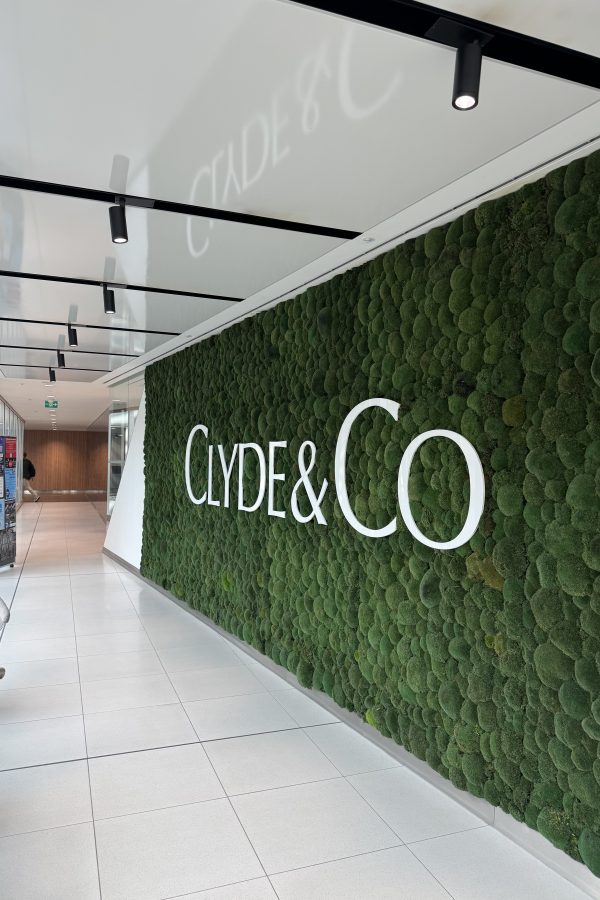Leaders’ own wellbeing, the importance of ‘purpose’ and the dangers of its negative effect on women’s careers were among key topics raised by HR experts in professional services firms during a discussion around the ‘Hokey-Cokey’ office – a reference to the hybrid working model now being proposed for businesses as the UK’s Covid crisis recedes.
Leadership styles will have to evolve to meet the demands of the hybrid working era, with the “Hokey-Cokey” office posing challenges that could see managers becoming far more people-centred than previously.
Some companies, such as JP Morgan and Goldman Sachs, have sought to head off these challenges by signalling their intention to see almost all employees return to the office. But most firms are taking on board staff’s desire to work some of the time from home with a poll by the BBC suggesting that around 80% of companies expected a mix of home and office working post-lockdown.
Such a “hokey-cokey” in-out environment is causing some anxiety among business leaders, many of whom are, after a year of mostly being at home, feeling just as “Zoomed out” as those who report to them. Another survey, by IDC and Unisys, discovered that almost four in 10 business leaders are worried about lack of management oversight as organisations move to hybrid working, compared with just 7% of employees.
Meanwhile, a poll of legal sector workers by Atlas Cloud found that 85% wanted to work from home at least one day a week post pandemic. So how should leaders lead in this new environment?
We recently asked four prominent figures in the legal sector and outside of it what sort of adjustments needed to be made.
Purposeful actions
For psychologist and founding partner at Professional Services Firms International, Henry Marsden, leaders will have to put a new emphasis on looking after themselves if they are to be ready to make calls on issues around health, engagement, meetings and reshaping the practice while “not being tired and exhausted and Zoomed out”. Then they need to examine how they will help people replace the work inputs that arise from accidental meetings and conversations with “deliberate and purposeful actions”.
The word “purposeful” also is key for Chris Oglethorpe, HR director at Gowling WLG. He says: “As well as looking after themselves, leaders will have to be more mindful about their impact across the team, some in the office and some remotely. It’s about being more purposeful and thoughtful about all the daily routines, whether it’s work allocation, feedback, communication, sense of purpose.”
Ingrid Waterfield, head of people strategy and culture at KPMG’s EMEA region, points out that for firms operating in several countries there are additional challenges. “We’ve got 140 countries and every leader has their business agenda they’re grappling with at the same time as hybrid working and trying to gauge what’s happening with Covid.”
She adds: “Leaders have always been role models but they are going to have to be more ‘on’ all the time. They are going to have to be more visible in their behaviours and how they lead by example and walk the walk if they want their teams to fully support them.”
Agility is key
All three agree that agility will be a key component of leadership over the coming years, as the hybrid workplace will evolve – there will not be a single model that can be imposed.
Establishing a clear purpose and a clear “why” behind work will become more important, the leaders agree. Oglethorpe says intrinsic motivation needs to be reconnected to foster cohesion – asking “what’s the North Star for the team?” will help people move forward with optimism and energy which in turn improves engagement, retention and winning bids. Focusing on purpose will connect people whether working remotely or in offices and give them energy, he says. “One of the biggest challenges for leaders is setting that purpose.” This is particularly pertinent when one considers employees recruited during the pandemic who had never met their line managers, Oglethorpe adds.
Waterfield points out that establishing purpose will help mitigate against the unwelcome formation of “in or out” groups with a dispersed workforce.
Marsden says that although “we’re naturally hard-wired to be productive and do good work” we “now have to consciously think about purpose. We now have to work harder at those things.”
He implies that a mass move back to the office risks setting back progress in some areas: “Most leaders have stepped up to the challenge, been more caring, looking after mental health. Leaders have exceeded my expectations. But we have to keep doing those things once back in the office. There’s a lot more now that leaders need to consciously do whereas before it all happened naturally.
“We have to make sure all the progress we’ve made isn’t lost. People are enjoying flexibility despite all the bad news in the backdrop.”
Diversity
Among key issues faced by leaders in the hybrid scenario is gender and neurodiversity. Could the careers of women and of people with certain characteristics such as being introvert be set back in an environment where some people are together in an office while others are at home? Oglethorpe points out that the hybrid law firm will attract those who want more flexible working styles such as carers. “It sets up a broader discussion on diversity.” he says.
Marsden is particularly forthright on the issue saying that there were problems with inclusive behaviour and gender before the pandemic. “And I think it’s going to get worse before it gets better,” he says. Referring to studies that showed women have been disadvantaged by having to carry out most of the home activities and he says: “Women are choosing not to put themselves forward for promotion because of their predicament. I don’t think men are making the right decisions. Men need to be more conscious of their choices and deliberate in their decision making. We make it the problem of women and minority groups but we don’t do much to change things.”
Raising the fear of offices being full of male extroverts while more women, carers and more introverted people of both genders remain at home, Marsden says work allocation is likely to favour those in the office. “People who go into offices will get the best jobs. It’s not acceptable but that’s what humans do. People think ‘I like people who are working like me or in the way I prefer’. We have to work very hard to stop this. People are lazy and just look around the office and say ‘can you do this?’. Partners are very risk averse … they don’t want to risk work by giving work to people we don’t know too well. We have to be open if we’re to fix this. It’s about leaders making choices.”
Waterfield adds that work allocation requires “discipline and focus to do the right thing and not fall into lazy ways”. Crucially, she says, “our clients are expecting this now … they are asking what the team is going to look like.”
Returning to the issue of leaders looking after themselves in terms of wellbeing, Oglethorpe says self care and peer support is becoming more important for leaders.
Marsden goes further, pointing out that with the legal and HR professions being among the most stressful on the planet, there were major traps being set for overworked leaders in the coming months. “Sustainability of leaders is now the issue. Intensity of client work has not slowed down. Leaders are exhausted. They are not at their best yet they are facing very big decisions over hybrid working.” There is a risk of fast and bad decisions by people who are too tired, he says, adding that leaders have been putting in good wellbeing policies for teams but need a lot of attention themselves.
Chris Oglethorpe, Henry Marsden and Ingrid Waterfield were guest speakers at a People in Law event in April.










